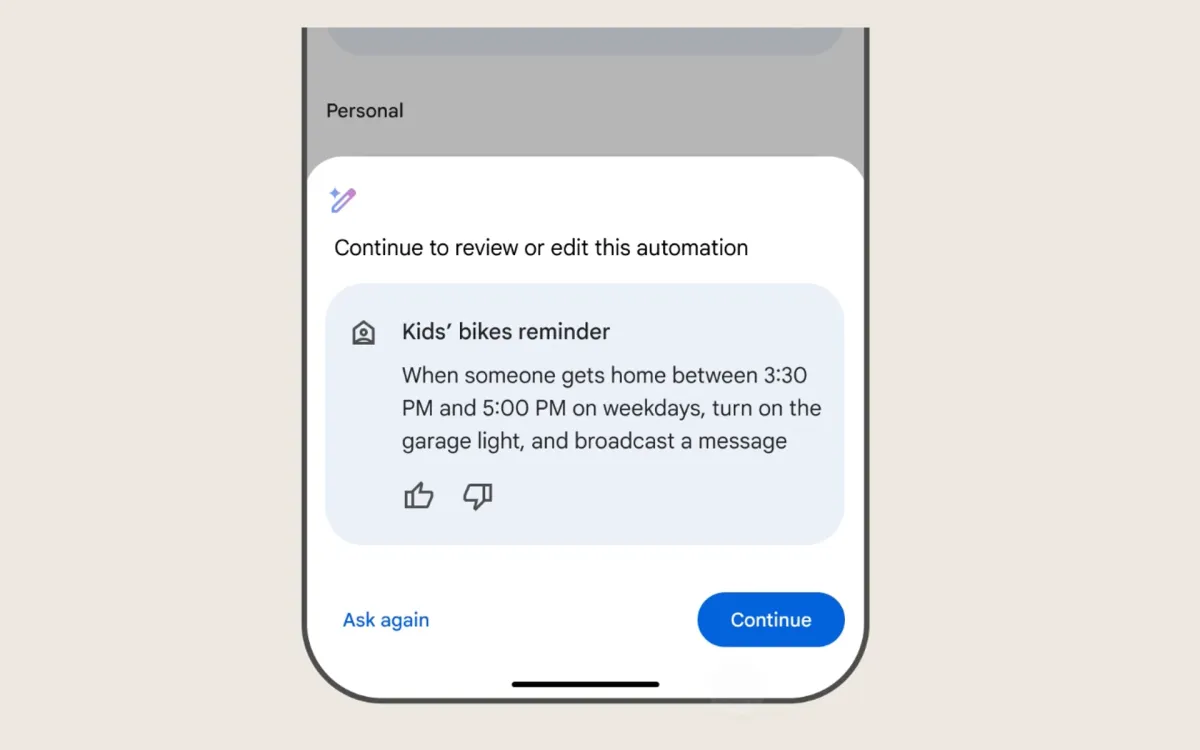
Google this week announced significant enhancements to its smart home ecosystem, leveraging the power of its Gemini artificial intelligence models. The tech giant revealed plans to incorporate advanced AI capabilities into Nest cameras, Google Home automation, and Google Assistant on Nest speakers and displays. This move aims to revolutionize how users interact with their smart home devices, offering more intuitive and comprehensive functionality.
According to Anish Kattukaran, Senior Director of Product Management for Google Home & Nest, these upgrades represent a major leap forward in smart home technology. The integration of Gemini models, which can process video, images, and text simultaneously, promises to redefine camera intelligence for the industry. This multimodal approach allows Nest cameras to transcend basic motion or object detection, providing users with more detailed and context-aware information about events in and around their homes.
One of the most notable improvements is the enhanced understanding capabilities of Nest cameras. Instead of simply detecting motion or identifying broad categories like "animal," the AI-powered cameras will be able to discern and describe specific actions. For instance, the system might recognize that "the dog is digging in the garden," offering users a more nuanced and valuable insight into their home environment.
The upgraded Google Home app will feature a new camera activity search function, powered by Gemini models. This tool enables users to search through their camera history using natural language queries. Whether looking for specific events like "Did the kids leave their bikes in the driveway?" or more general occurrences such as "Did the FedEx truck drive by today?", the system can quickly sift through footage and provide relevant clips and summaries.
In the realm of home automation, Google is introducing a "Help me create" feature in the Google Home app. This Gemini-powered tool aims to simplify the process of setting up home automations. Users can describe their desired automation in plain language, and the system will automatically configure the necessary steps. This feature is designed to make complex home automation accessible to a broader range of users, regardless of their technical expertise.
Google Assistant, a cornerstone of the company's smart home ecosystem, is also receiving significant upgrades. The integration of Gemini technology is set to make interactions with Google Assistant on Nest speakers and displays more natural and conversational. Users will be able to ask follow-up questions and engage in more fluid dialogues without the need for precise, predefined phrases.
The rollout of these new features will begin with a limited number of Nest Aware subscribers who are part of the Public Preview program later this year. Google plans to expand availability over time, ensuring a smooth and controlled integration of these advanced AI capabilities.
While these announcements represent a significant step forward in smart home technology, they also raise important questions about privacy and data security. Google emphasizes that these enhancements will be implemented in line with their established privacy principles, ensuring user data remains safe and protected.
The integration of Gemini AI into Google's smart home products comes at a time when the smart home market is experiencing rapid growth and increasing competition.
Google's move to incorporate more advanced AI capabilities into its smart home products can be seen as a response to this growing market and increasing competition from other tech giants like Amazon and Apple. By leveraging its strengths in AI and machine learning, Google aims to differentiate its offerings and provide unique value to consumers.
The integration of Gemini models into smart home devices also reflects a broader trend in the tech industry towards more sophisticated AI applications in everyday consumer products. As AI technology continues to advance, we can expect to see more products and services that offer increasingly personalized and context-aware experiences.
However, the implementation of such advanced AI capabilities in home devices also brings challenges. Privacy concerns remain a significant issue for many consumers when it comes to smart home technology. The ability of these devices to understand and interpret detailed information about users' home environments may raise questions about data collection and usage.
Moreover, the reliance on AI for home automation and security functions raises questions about reliability and potential vulnerabilities. As these systems become more complex and integral to daily life, ensuring their robustness and security becomes increasingly critical.
Despite these challenges, the potential benefits of AI-enhanced smart home technology are significant. Improved home security, more efficient energy use, and enhanced convenience are just a few of the potential advantages that these advancements could bring to consumers.
As Google rolls out these new features, it will be crucial to monitor their real-world performance and user reception. The success of these AI-enhanced smart home products will likely depend not only on their technical capabilities but also on how well they integrate into users' daily lives and address privacy concerns.
In conclusion, Google's announcement marks a significant step forward in the evolution of smart home technology. By leveraging advanced AI models, the company aims to create more intuitive, capable, and user-friendly smart home experiences. As these features begin to roll out to users, they have the potential to reshape how people interact with and benefit from their smart home devices.
Key facts
Google is integrating Gemini AI models into Nest cameras, Google Home, and Google Assistant.
New features include AI-powered camera descriptions and activity search in the Google Home app.
A "Help me create" feature will simplify setting up home automations using natural language.
Google Assistant on Nest speakers and displays will become more conversational.
These features will initially roll out to Nest Aware subscribers in Public Preview later in 2024.
Privacy and data security remain key considerations in the implementation of these AI features.

